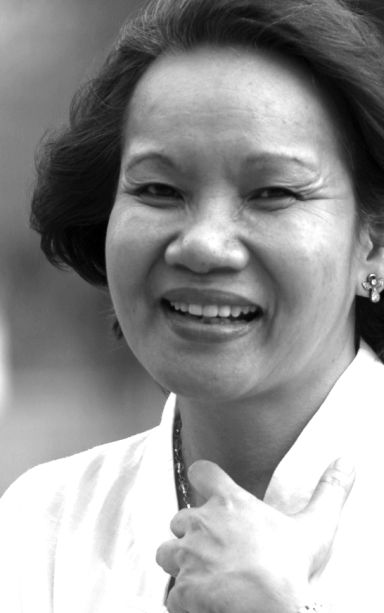
LOGARTA
In the recent Rotary District 3860 Conference, Atty. Katrina Legarda, well-known woman’s advocate, discussed being an agent of change by being ready to help women and children victims of abuse. First she reminded the Rotarians that the Philippines ranked 7th in the Global Gender Gap Index.
Then she asserted that although we ranked high as professional and technical workers and for education at all levels, we ranked 107 in labor force participation.
Going to the topic at hand, she called attention to the fact that “globally 38% of murders of women are committed by an intimate partner.” And she proceeded “On the average, 30% of women who have been in a relationship report that they have experienced some form of physical or sexual violence by their partner.” So she emphasized: “Violence against women — particulary intimate partner violence against women — are major public health problems and violations of women’s and human rights”. In a chart, she presented the range of this physical and sexual violence: coercion, using intimidation, using emotional abuse, using isolation, minimizing, denying, and blaming, using children, using male privilege, and using economic abuse.” She placed power and control at the center because of their being the underlying cause of the violence.
She explained that there are reasons why the violence against women of higher status remains not acted upon. First there is the cycle of violence: It starts with tension caused by “criticism and verbal abuse; tension and fear build up leading to an explosion of verbal and physical violence.” But this is followed by “apologies and promises” with a “honeymoon stage” wherein the “the batterer is charming — Hearts and Flowers”; at times this can last for quite a while.
Another reason for the absence of action is the belief that “domestic violence afflicts only the under-privileged. Their injuries may be ignored or overlooked by professionals who are unaware of domestic abuse among the upscale or are afraid to intervene in such cases.”
“The upscale abused wife voices more attachment to her lifestyle than the traumatic bonding with her abusive mate.”
So what does Atty. Legarda advise? “If you notice injuries, be direct and ask her how she sustained them. Insist that she seek medical attention, even if her story seems weak. Go with her to the doctor. The first person who can help is ‘the abused woman herself…when she recognizes that she can no longer cope on her own.’”
She offered some statements which can be said so that action can be decided upon: “*Domestic violence is a crime. *I am afraid for your safety. *I am afraid for the safety of your children. *It happens everywhere including to people like us. *Your secrets run your life. *It will only get worse. * I am here for when you are ready to talk. *You don’t deserve to be abused. *To remain silent lets your husband believe he can get away with such awful behavior.”
She suggested the following: “Agree to a code word to be used when the danger escalates. Then if you are called, call the police.” “Help her create a safety plan. Arrange a safe house — a place her husband or boyfriend does not know. Suggest she hides a cheap cell phone in every room of their home so she can call for help.”
For communities, she presented “Action Steps to End Domestic Violence” — “*Cultivate a respectful attitude towards all persons regardless of gender.
*Model a non-violent conflict resolution in your family and community. *Find out about domestic violence services in your community. *Develop a school-based curriculum on human rights, especially children’s rights. *Speak out against violence in media, video-games, the internet.”
Legarda alerted the Rotarians with some statistics regarding how ICT “facilitated the abuse and exploitation of the youth. “33 % bullied in the past month, most commonly through FB, mostly 15-16 year olds; 1 in 100 youth has recorded himself/herself having sex; 1 in 4 Pinoy youth have sent or received sex videos; 23 % have seen naked people online.”
“79 % had bad experience on the internet; 46% related to involuntary exposure: males or older children; sexual solicitation 50 %; sexual solicitation and internet harassment 33%.”
These were challenges presented to the gathering of Rotarians from Visayas and Mindanao. It was also a call to action for all of us.